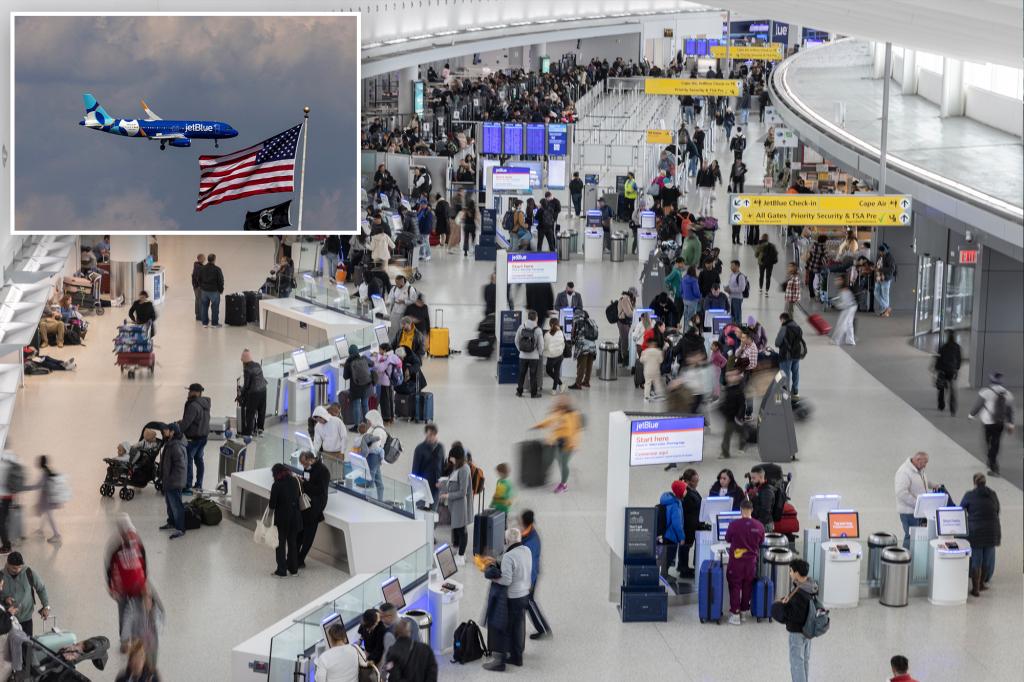JetBlue Restructures Network for Profitability Amidst Industry Challenges
JetBlue Airways has announced a series of strategic network adjustments, including route cancellations and capacity reductions, aimed at bolstering profitability and addressing operational challenges. The airline’s decision comes amidst a backdrop of post-pandemic recovery, supply chain disruptions, and increased scrutiny of airline pricing practices. While the airline reported stronger-than-expected revenue and bookings in late 2024, it acknowledges persistent profitability issues in certain markets, particularly Florida. These network changes reflect a broader effort by JetBlue to optimize its operations, reallocate resources to high-demand routes, and navigate the complex dynamics of the current aviation landscape.
The most significant changes involve the discontinuation of several routes from key hubs. Flights from New York’s John F. Kennedy International Airport (JFK) to Austin, Houston, and Miami will be terminated in 2025. Additionally, domestic routes between Westchester County Airport (HPN) and Charleston, as well as between Jacksonville and Fort Lauderdale, will be eliminated. JetBlue will also cease all operations from San Jose and discontinue its Mint premium service on flights to Seattle. Internationally, the airline will eliminate one of its two daily flights between JFK and Paris and completely discontinue service between JFK and London Gatwick Airport.
These route cuts are part of a broader strategy to address underperforming markets and redeploy resources to more profitable routes and new opportunities. JetBlue specifically cited the highly competitive landscape in Miami, dominated by legacy carriers like American and Delta, as a contributing factor to its profitability challenges in Florida. Ending service between JFK and Miami will also alleviate overstaffing issues in Miami, with the airline working to relocate affected crew members to other cities within its network. While JetBlue maintains a strong presence in Florida, these adjustments reflect the need for a more focused and efficient allocation of resources.
The airline emphasizes its commitment to providing customers with alternative travel options or refunds where applicable. Passengers affected by the cancelled routes will have the opportunity to rebook on alternative JetBlue flights or receive a refund if no suitable alternatives are available. The airline’s customer service team will be working to proactively communicate with affected passengers and assist them with making alternative travel arrangements. This commitment to customer satisfaction underscores JetBlue’s efforts to mitigate the disruption caused by these network changes.
Beyond market performance, JetBlue’s network adjustments are also influenced by ongoing challenges within the aviation industry. The Pratt & Whitney engine grounding issue, stemming from a rare powder metal defect, has significantly impacted airline operations, including JetBlue’s. The lengthy inspection process required for hundreds of engines has resulted in grounded aircraft and operational constraints. JetBlue anticipates that the number of grounded aircraft will remain elevated in 2025, further emphasizing the need for network optimization and efficient resource allocation. This external factor underscores the complex interplay of challenges facing the airline industry.
The broader context of these route cuts includes increasing scrutiny of airline pricing practices. Recent Congressional hearings have focused on the proliferation of ancillary fees charged by airlines for services such as checked baggage and seat assignments. While JetBlue was not specifically named in these hearings, the industry-wide scrutiny highlights the pressure on airlines to manage costs and maintain profitability. JetBlue’s decision to streamline its network and focus on high-demand markets can be viewed as a proactive measure to address these challenges and ensure long-term financial stability. The airline’s focus on cost reduction and operational efficiency aligns with broader industry trends.
In summary, JetBlue’s network restructuring represents a strategic response to a confluence of factors. Profitability challenges in specific markets, particularly Florida, combined with the ongoing impact of the Pratt & Whitney engine grounding issue, have necessitated a more focused and efficient approach to network management. By eliminating underperforming routes and reallocating resources to high-demand markets, JetBlue aims to strengthen its financial position and navigate the complex dynamics of the current aviation environment. While these changes may cause some disruption for travelers, JetBlue’s commitment to providing alternative travel options and refunds reflects its dedication to customer satisfaction during this period of transition. The airline’s focus on cost reduction and operational efficiency positions it to address the evolving challenges and opportunities within the airline industry.


